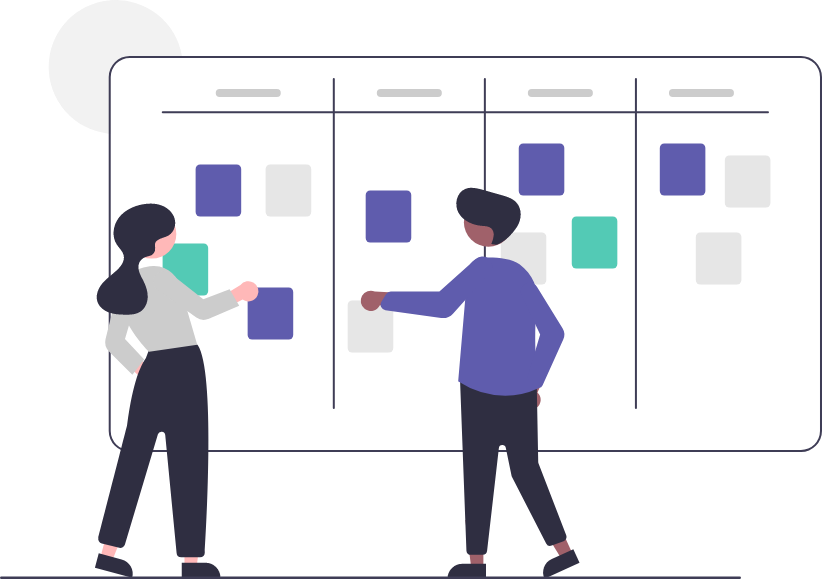What does an AI Consultant do & how can they help your business?
The words Artificial Intelligence (AI) and Machine Learning (ML) have gained more attention over the last decade with the promise to make business operations more efficient, competitive, profitable and scalable. However, many business leaders seeking to leverage and make decisions about adopting such technology lack a clear understanding of how they work, their strengths and limitations, and how to adopt them. This is where AI consultants can provide invaluable support.
What is an AI consultant?
An AI consultant is an individual with expert knowledge on AI and ML often with a background in a discipline such as mathematics, statistics, computer science or data science. A consultant helps business leaders understand and prioritise the business challenges and operations that are viable candidates for intelligent automation and detail the process, requirements and benefits resulting from adoption. For example, a company’s customer service department may experience a bottleneck in responding to customer queries due to a lack of staff. The AI consultant may propose chatbots as a solution to this business problem, which can manage simple and straightforward queries so that staff can focus on more complex enquiries or issues that require staff involvement. To make this kind of recommendation, an AI consultant will need to understand your business’s existing data, tech stack, infrastructure, and workflow in which the bottleneck occurs to define the requirements and specifications for an appropriate solution. After performing this investigation, the consultant will be responsible for developing and implementing the tested solution into your business operations.
As more sectors begin to adopt AI, the demand for specialists is higher than ever. With a shortage of talent and high demand, competition is fierce and the salaries for experienced data scientists and AI experts are often only accessible by larger companies. By partnering with a consultant partner, small to medium-sized businesses can gain access to these technologies without a premium charged price. Let's discuss in more detail what AI consultants do to help your business.
What can AI consultants do to help your business?
1. Develop an AI strategy and roadmap
AI can unlock many benefits for business and it’s important to have a clear goal and vision. Careful planning is required to ensure that vision is realistic and achievable: the complexity of AI projects is often overlooked which can result in lackluster results or blown out timescales and budget. Thus, the initial challenge for an AI consultant is developing a deep understanding of the business challenge, the available business data and the AI tools and methods that present a viable solution, then defining the AI specifications and the time, resource and investment requirements for the build. AI consultants complete this process by completing what is often called a scoping.
By conducting a scoping, the consultant will be able to answer questions such as:
- What is the nature of the business challenge(s)?
- Whether the available data is relevant and sufficient?
- What AI application is feasible to use,
- What the risks of adopting it within your business,
- Whether it meets the budget your business has or requires larger funding,
- Whether it is the best solution to use for your business in terms of both the best method and whether it brings a good return on investment (ROI).
Questions such as these are crucial as they allow the AI consultant to determine whether AI is the right answer to your business problems. AI isn’t always the best solution to your problems as it cannot solve everything. It is also not always the most cost-effective solution to business problems. If the problem can and should be solved with AI, then the consultant will then begin to set out objectives in the scoping session to plan and build an AI strategy roadmap.

This roadmap will contain information on the planned solution, the risks of adopting it, the specifications, investment, and duration. The scoping session and roadmap building will usually run over a few weeks and require exchange of information between the consultant and your business.
2. Build and validate the prototype
Following the scoping stage and depending on the recommendation and early-stage feasibility assessment, the approach is signed-off. The AI consultant then begins the process of building a prototype: processing the data into a format suitable to be processed by AI/ML models, training the model and refining it to improve performance. This process of creating a proof of concept (PoC) is iterative and is designed to validate the technical feasibility of the solution experimentation and testing. Validating the PoC is done by generating predictions and comparing the output against defined performance metrics and parameters. A decision will then be made as to whether the PoC is successful and ready to progress to the next stage of development.

However, there are some situations in which the PoC is not considered successful, such as if the model is unable to generate precise and consistent predictions with the data provided. In these situations, deploying the model and putting it into real-world use could be disastrous, such as losing trust of your customers and lost revenue, or in scenarios such as healthcare, loss of human life. To mitigate these risks, AI consultants will continually test and validate the model and review the data the model is supplied. As the client, you will also work with the consultant until satisfactory results are achieved – or until it is demonstrated that with the available data and technology the objective cannot be achieved.
3. Deploy and integrate the finished version
Once the PoC is validated, the relevant data and software engineering must be applied to create a deployable version. Although the solution has been validated in principle at the PoC stage, caution is still required at the implementation stage as AI models and software, despite having been rigorously tested, can behave differently in a production environment than a testing environment. Once deployed, the model must be deployed and continuously monitored and evaluated to ensure that it is performing in the way and to the standard intended.
The job isn’t complete once the model is deployed. Like any piece of software, the model must be continually monitored and refined over time to improve model performance and maximise the business value it creates. This is done via a process known as MLOps, which is the process of managing the on-going lifecycle of models once they are deployed and ensures they remain consistent and reliable.
Final word
With the UK government having announced its National AI Strategy and the aspiration to make the UK a global powerhouse for AI, the rate of digital transformation will continue to accelerate with AI at the centre. However, due to a low supply of data scientists out in the market, and a premium charging price for their individual talent, SMEs are left at a disadvantage when it comes to leveraging the benefits of AI. AI consultants will allow these smaller and medium-sized businesses to feel a part of the digital transformation.
If your business is interested in leveraging artificial intelligence to solve your business problems, get started with Brainpool as we’re here to support you through and through.
Written by Clayton Black and Andrew Modrowski
